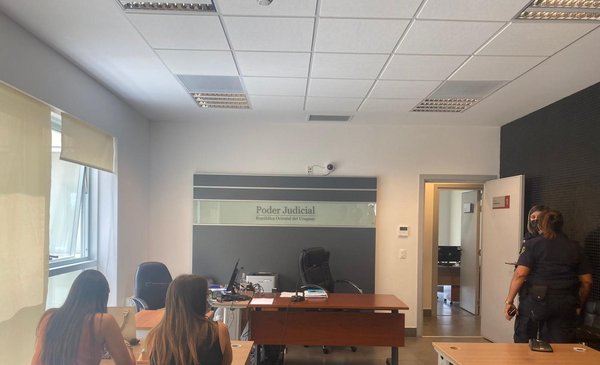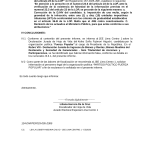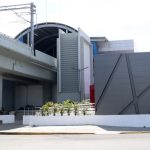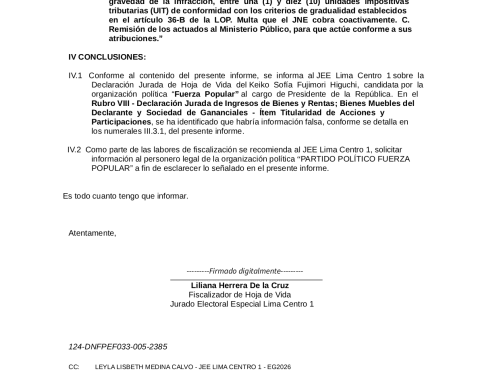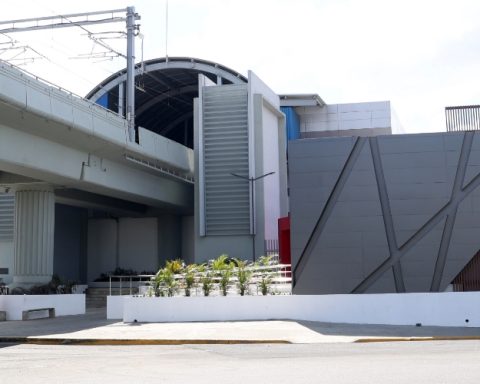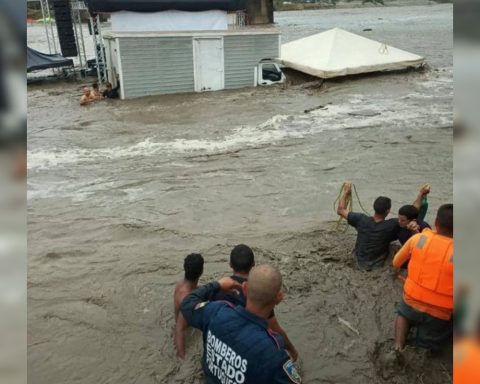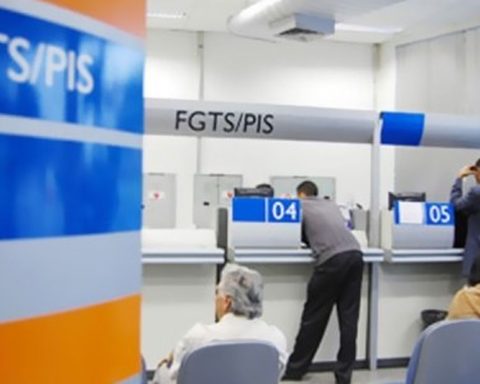The father and mother of Juan Ignacio Romero (18) only saw the backs of the four youths who beat their son and ran him over with a quad. Sitting near the door and at the back of the room, they watched the entire hearing to formalize the judicial investigation. They held onto chairs, crossed their arms, and made some seemingly involuntary facial gesture every time they heard something that made them angry or hurt. At the hearing, Judge Sebastián Amor charged them with aggravated private violence and personal injury. One of them as author and the other three as co-authors. He denied preventive detention as a precautionary measure.
According to the prosecutor Ana Rosés at the hearing, Romero left the house that his family rented in the Pinares resort on February 5 after 8:00 p.m. Based on his clothing –a hooded sweatshirt, a hat with a visor and cargo-style pants– the four defendants mistook him for a thief who was robbing his neighbors. The young man, who had gone out for a walk listening to music, could not hear the shouts of the aggressors who accused him of “squirting” and told him to stop.
The victim, who was still enjoying his walk, was knocked down by a kick that came from behind. He looked and there were three more men with truncheons in hand coming up behind him. He ran as fast as he could until he didn’t see them anymore. But the accused now had not declined in their intention to hurt him, they had returned to his house -adjacent to Romero’s- to arm themselves.
There one of them –the one who was accused of being responsible for the attack– got on a quad; and the other three to a car. It didn’t take them long to find him. Romero had resumed his walk, until they hit him with the quad in such a way that he “was sitting in the vehicle” (in the words of Rosés) and only several meters later did he fall to the ground. He got up and ran to hide in some bushes, but they caught up with him again.
He yelled at them and repeated several times that “it wasn’t a jet, it was the neighbor.” He told them that he was going to show them that he was not lying if they accompanied him to his house. At that moment, according to the prosecutor, they tried to put him inside the car against his will while they shouted at him that if it wasn’t his house they were going to kill him. In the end, they escorted him on foot and searched his body to see if he was carrying weapons.
90% of what happened was recorded by cameras from the Ministry of the Interior and by a neighbor who contributed it to the Public Ministry, stressed Rosés.
His father’s partner opened the door and confirmed that the young man lived there, and asked them to leave him alone. The defendants, aware of the error, returned the diver and gave him money to buy another hat.
Later they tried again to correct what happened through economic gifts. The prosecutor assured that they wanted to invite him to ride the quad with which they had rammed him, to the pool and even offered to pay the father the rest of the rent as long as they left the property.
The prosecutor obtained the consent of the judge regarding the formalization, but not so in the request for precautionary measures. She argued that there was a risk that if the defendants were released they could hinder the investigation and also compromise the physical and mental safety of the victim. For that reason, she requested 90 days of preventive detention.
Judge Amor stated that “there is no merit to believe that there is serious and well-founded suspicion” on these points, which is why he denied the request. Instead, he ordered the fixing of the address, the impossibility of leaving the country and the prohibition of approaching 500 meters from the victim. The prosecution decided to appeal, so it will be the appeals court that decides if this is upheld.
This was the high point of the hearing. The defender of the defendants pointed out that the principle of harmfulness should be applied – that is, contemplate that there were no serious consequences for the victim – and that there was an inconsistency between the seriousness of the typified crimes and the request for preventive detention. In addition, he maintained that they were young people with roots –so they would not run away– and that they have not hindered the investigation, and that minor injuries were found.
Twelve hours after the event, the forensic expertise was carried out, which recorded “pain in the lower lumbar area, erosion in the left leg and pain in the right leg,” details the document to which he accessed The Observer. It is indicated that the recovery time is three to four days and the disqualification time is three days, which according to sources in the case corresponds to minor injuries.
The prosecutor said at the hearing that Romero suffers from symptoms consistent with post-traumatic stress. His father had told The Observer that “he is eating little, sleeping badly, the images of what he experienced come to him even at times when he is engaged in a distraction activity (such as watching TV)”. “She walks next to us looking back every so often and finds it hard to concentrate,” she explained.
Lawyer for the defendants blamed only one of them
The lawyer of the four accused, Sebastián Serrón Bon, assured in hearing that what happened is reduced to a “morally reprehensible” situation, but not criminal misconduct. This, except in the case of the defendant as the author, of whom he recognized an “improper conduct, not in accordance with the established criminal law.” “There was no multiparticipation”, he concluded emphatically.
Among his arguments, he highlighted that the victim accepted the money when it was offered to him and stated that the night of the persecution the defendants called 911 to alert the authorities.
“The police official reports that when she arrived there was no problem. Everything was calm and they even hugged between the complainant and the defendants. An attempt was made to fix the error,” she stated.
He also stressed that the forensic doctor’s report indicates only minor injuries and that after being released for six days, the youths never tried to hinder the investigation. Criticizing Pablo Romero —who, due to his capacity as advisor to the ANEP, had a quick arrival in the media where he told the story of his son— he indicated that the parents of the defendants—the four of them are between 23 and 25 years old— “have no connection politics or any position. According to Serrón Bon, Romero threatened them because of his position.
